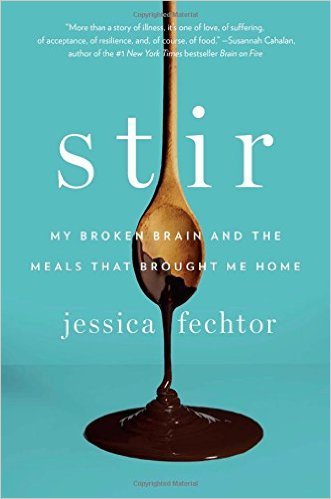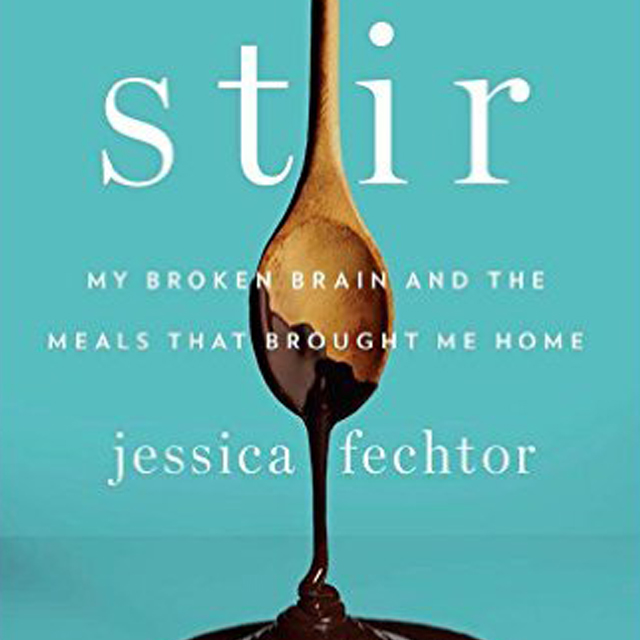
One kind of peer pressure I particularly esteem is that of perusing what other kindred spirits online happen to be reading. I had spied this book at an airport bookstore and been easily taken in by its robin’s egg blue hue and the wooden spoon dipped into melted chocolate that drips into a pool below. There’s something so tactile in the image and cheering about the color that I had noted the book for a future read. Then, I began seeing the book in action in Instagram photos. I decided to take the plunge and added it to my summer reading series. I’m so glad I did. Stir: My Broken Brain and the Meals that Brought Me Home by Jessica Fechtor kept me spellbound.
The story starts with a collapse and a subsequent emergency trip to the hospital where Fechtor learns she has had a sudden aneurysm. The rest of the story explores the long road to healing and how cooking and baking play an instrumental role in her finding her footing once again. This is Fechtor’s first book and I can relate to the joy and excitement involved in that enterprise. In terms of layout, this culinary memoir follows the playbook of section endings including a recipe mentioned in the previous section. Many of the recipes are adapted and read as part of a binder of favorite recipes and familiar flavors that will reconnect her with who she is when she is unsure. I particularly liked her descriptions of bread and have made a note to visit Hi-Rise Bakery when I’m in Boston this fall. I loved the moments where a cup of tea snuck into the narrative and think it would be all kinds of brilliant to have tea with Fechtor and talk about writing, Derek Walcott’s Omeros, and cooking.
It’s easy to cheer Fechtor on through every small and large victory. As a heroine of her own story, she exhibits poise and grace in circumstances where she might have become despondent or angry, instead she gives the reader gratitude. There were a few circumstances where I felt angry on her behalf such as a crucial missed appointment where I stated aloud about the ineptitude of that office to my husband late one evening. Her family and friends rally around her, but so much of the work being done is internal in the places they can’t physically see. And yet, one thing she didn’t expect is how the time spent healing and becoming whole might be a time she would rue coming to an end and this points to the book title’s inspiration: “It was the strangest thing, this tug of longing for the days that I was still squarely in. The very days that I’d been counting down. There in that house on the water, something was happening. Something so quiet that it was barely persceptible to me. It was more of a stir than a shift, a breeze that swirls through a pile of leaves, holds them in the air for a moment, then sets them back down, the same pile, rearranged.”
She writes her vulnerability with quiet strength and in prose so lovely that it can be arresting. So many of the highlights in my copy of the book are of powerful and fresh metaphors like describing Toll House cookies as “faintly rippled like unsmoothed bedsheets.” Where I think her writing finds its pinnacle force is in her description of food, cooking and observations around them. Her details are simple and grounded in stimulating the senses. When she speaks about food, she is really speaking about life: “To fry an egg is to operate with the perfect faith that you will sit down and eat it.” A hopefulness permeates the pages of this book. To say that it stirred something deep within me is an understatement. I’m still cheering Fechtor on long after the book has been finished and the cover is closed. I look forward to reading more from her and glad she blogs over at Sweet Amandine.
